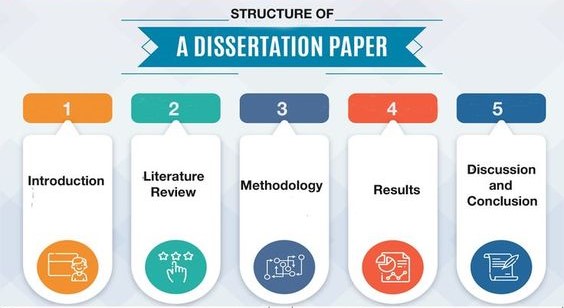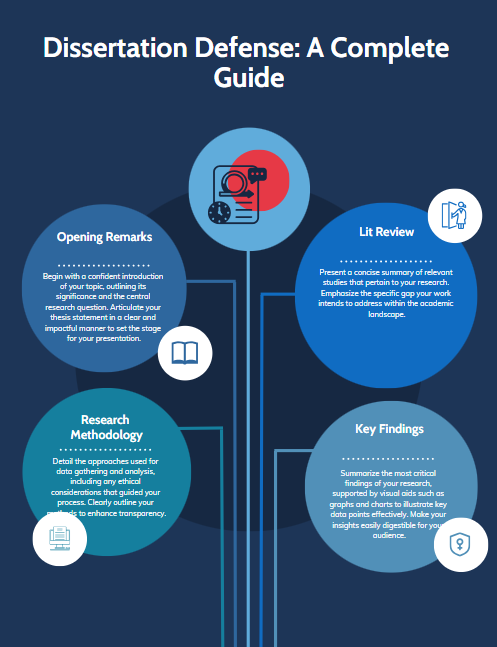The dissertation defense. It’s the culmination of years of research, countless hours spent in libraries and laboratories, and a mountain of caffeine-fueled nights. It's the moment you stand before a panel of experts, ready to present your work and defend its merits. While the thought of this public scrutiny can be daunting, approaching your dissertation defense with a strategic mindset can transform it from a dreaded ordeal into a powerful demonstration of your academic prowess.
This article aims to equip you with the tools and strategies necessary to craft a compelling dissertation defense, ensuring that your research shines and your voice is heard.
Understanding the Purpose of the Dissertation Defense
The dissertation defense is not merely a formality; it's a vital component of your academic journey. It serves multiple purposes:
- Demonstrating mastery of your chosen field: The defense allows you to showcase your in-depth knowledge and understanding of your research topic.
- Presenting original research: You have the opportunity to present your findings, their implications, and the significance of your contributions to the field.
- Engaging in academic discourse: The dissertation defense fosters a dialogue between you and your committee members, allowing for constructive feedback and critical analysis of your work.
- Defending your arguments: You must be prepared to answer challenging questions, address potential weaknesses in your research, and defend your conclusions with confidence and clarity.
Steps to Crafting a Powerful Dissertation Defense Presentation
A compelling dissertation defense presentation goes beyond simply reciting your findings. It’s a narrative that engages your audience, builds credibility, and leaves a lasting impression. Here's a step-by-step guide to crafting your presentation:
1. Know Your Audience:
Understand the expectations and expertise of your dissertation defense committee.
- Research their areas of expertise: Identify their publications, research interests, and any potential areas of divergence in your research.
- Tailor your presentation: Ensure your presentation addresses the specific interests and concerns of your committee members.
2. Structure Your Presentation:
A well-structured presentation provides clarity and flow, enabling your audience to follow your arguments and appreciate the significance of your work. Consider the following structure:
- Introduction: Briefly introduce your topic, its relevance, and your research question. State your thesis statement clearly and concisely.
- Literature Review: Summarize relevant existing research, highlighting the gap your research aims to fill.
- Methodology: Explain the methods you employed, including data collection, analysis, and ethical considerations.
- Findings: Present your key findings, using visuals and supporting data.
- Discussion and Implications: Analyze the implications of your findings, drawing connections to existing research and highlighting their potential impact.
- Conclusion: Summarize your key findings, reiterate your thesis statement, and briefly mention areas for future research.

3. Visual Aids: Engage and Inform
Visual aids are essential for engaging your audience and conveying complex information effectively.
- Choose visuals strategically: Use graphs, charts, diagrams, and images to illustrate your data, clarify your arguments, and break up the text-heavy presentation.
- Prioritize clarity and simplicity: Ensure your visuals are easy to understand and interpret. Avoid overwhelming your audience with too much information.
- Practice with your visuals: Familiarize yourself with your visual aids and ensure they are displayed smoothly during your presentation.
4. Writing a Powerful Script:
Your dissertation defense script should be a concise and compelling summary of your research, designed to engage your audience and stimulate discussion.
- Focus on clarity and brevity: Craft your script with precision, prioritizing clear language and concise phrasing. Avoid jargon and overly technical language.
- Use strong verbs and compelling language: Make your presentation engaging and memorable by using active voice and vivid language.
- Engage your audience: Direct questions to your committee members, encourage them to share their thoughts, and create a collaborative learning environment.
5. Practice Makes Perfect:
Rehearse your dissertation defense presentation thoroughly to ensure smooth delivery and a confident demeanor.
- Practice in front of a mirror: Pay attention to your posture, eye contact, and nonverbal cues.
- Practice with a mock audience: Receive feedback from trusted friends, colleagues, or mentors.
- Time yourself: Ensure your presentation fits within the allotted time.
6. Anticipating and Addressing Questions
Your dissertation defense committee will have questions. Prepare for them by:
- Identifying potential weaknesses: Anticipate areas where your research might be questioned or challenged.
- Preparing concise and well-supported answers: Develop clear responses to anticipated questions.
- Reflecting on your research: Be prepared to defend your decisions and explain your choices throughout your research process.
7. Maintaining a Professional Demeanor
A confident and professional demeanor is crucial for conveying credibility and authority.
- Dress professionally: Ensure your attire reflects the seriousness of the occasion.
- Maintain good eye contact: Engage with your committee members and show that you are attentive and prepared.
- Speak clearly and confidently: Project your voice and articulate your responses with clarity and conviction.
Dissertation Defense Strategies for a Successful Presentation
1. Embrace the Opportunity to Learn and Grow:
Your dissertation defense is not simply a test; it's an opportunity to learn from your committee members and refine your research. Embrace constructive criticism as a chance to enhance your understanding and improve your work.
2. Stay Calm and Composed:
It's natural to feel nervous before your dissertation defense, but remember to stay calm and composed. Take deep breaths, maintain your focus, and trust in your preparation.
3. Engage with your Committee:
View your committee members as collaborators in your learning journey. Engage with their questions and comments, demonstrating a willingness to learn and grow.
4. Maintain a Positive Attitude:
A positive attitude goes a long way in navigating the dissertation defense process. Be confident in your work and showcase your passion for your research.
5. Trust in your Abilities:
Remember, you've dedicated years to this research. Trust in your abilities and believe in the value of your contribution to the field.
The Power of a Compelling Dissertation Defense
A well-prepared and compelling dissertation defense is more than just a formality. It's an opportunity to demonstrate your mastery of your field, showcase your original research, and establish yourself as a scholar within your academic community. By approaching your dissertation defense with a strategic mindset, embracing the opportunity for learning, and maintaining a confident demeanor, you can confidently present your work and celebrate the culmination of your academic journey. The dissertation defense is not simply the end; it's the beginning of a new chapter in your scholarly career.

Navigating the Common Pitfalls in Dissertation Defense
The dissertation defense is a pivotal moment in any academic journey, representing the culmination of years of research and dedication. It is also a significant hurdle that can be fraught with challenges. Many students, despite their rigorous preparation, fall prey to common pitfalls that can hinder their success. By understanding these obstacles and implementing effective strategies, you can navigate your dissertation defense with confidence and achieve your academic goals.
Pitfall 1: Lack of Clarity and Coherence: A poorly organized dissertation defense can quickly become a logistical nightmare. Ensure your presentation is clear, concise, and logically structured. The defense committee should understand the central argument of your dissertation and how each section contributes to the overall narrative. Practice your presentation thoroughly, rehearsing with a friend or mentor to refine your delivery and ensure a smooth flow of information.
Pitfall 2: Ignoring the Committee's Feedback: The dissertation defense is not just about presenting your research; it is also about engaging in a dialogue with your committee. Pay close attention to their questions and provide thoughtful, well-reasoned answers. Acknowledge their feedback constructively, demonstrating your willingness to learn and adapt.
Pitfall 3: Over-reliance on Technical Jargon: While your research may utilize specialized terminology, it is essential to communicate your findings in a way that is accessible to the committee. Avoid excessive jargon and technical language that could hinder their understanding. Clearly explain complex concepts and provide context for unfamiliar terms.
Pitfall 4: Insufficient Practice: The dissertation defense demands confidence and a firm grasp of your research. Insufficient practice can lead to nervousness, gaps in knowledge, and an inability to effectively articulate your findings. Engage in mock defenses with colleagues, friends, or mentors to build your confidence and refine your presentation skills.
Pitfall 5: Not Preparing for the Unexpected: Even with meticulous preparation, the dissertation defense may throw unexpected questions your way. Anticipate potential areas of inquiry and prepare concise, clear responses. This proactive approach will allow you to confidently address any unanticipated queries.
Pitfall 6: Disregarding the Importance of Body Language: The way you present yourself during your dissertation defense can greatly impact the committee's perception. Maintain eye contact, project your voice clearly, and use appropriate gestures to engage your audience. Avoid fidgeting or appearing overly nervous.
Avoiding the Pitfalls: A successful dissertation defense requires a multifaceted approach that goes beyond simply presenting your research. By recognizing common pitfalls, engaging in thorough preparation, and developing effective communication skills, you can overcome these obstacles and achieve your academic goals. Remember, the dissertation defense is a culmination of your intellectual journey. Embrace the opportunity to showcase your expertise, engage with your committee, and confidently defend your research.

Final Thoughts: Embracing the Journey
The journey to the dissertation defense is long and arduous, but the culmination of your efforts in this powerful academic event is a testament to your perseverance, intellect, and passion. By approaching your dissertation defense with a well-crafted presentation, strategic preparation, and a confident demeanor, you can transform this pivotal moment into a triumphant celebration of your academic achievements. Remember, your dissertation defense is not just about defending your research; it's about defending your own unique intellectual journey. Embrace the process, learn from every interaction, and celebrate the culmination of your years of dedication and hard work.
Order Professional Dissertation Writing Service
At Exemplary Dissertations, we can help you to craft an authentic and impactful dissertation defense. Our service covers dissertation defense writing, proofreading, editing, formatting and plagiarism removal. Besides, we also offer professional paper writing help for essays, research papers and case studies.